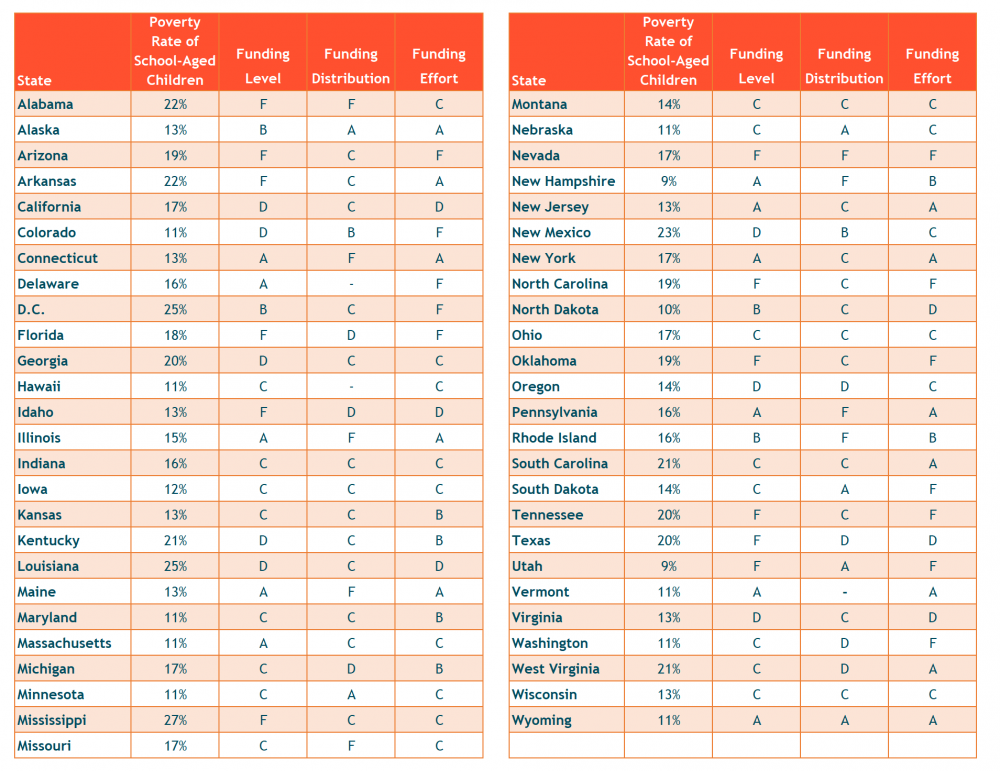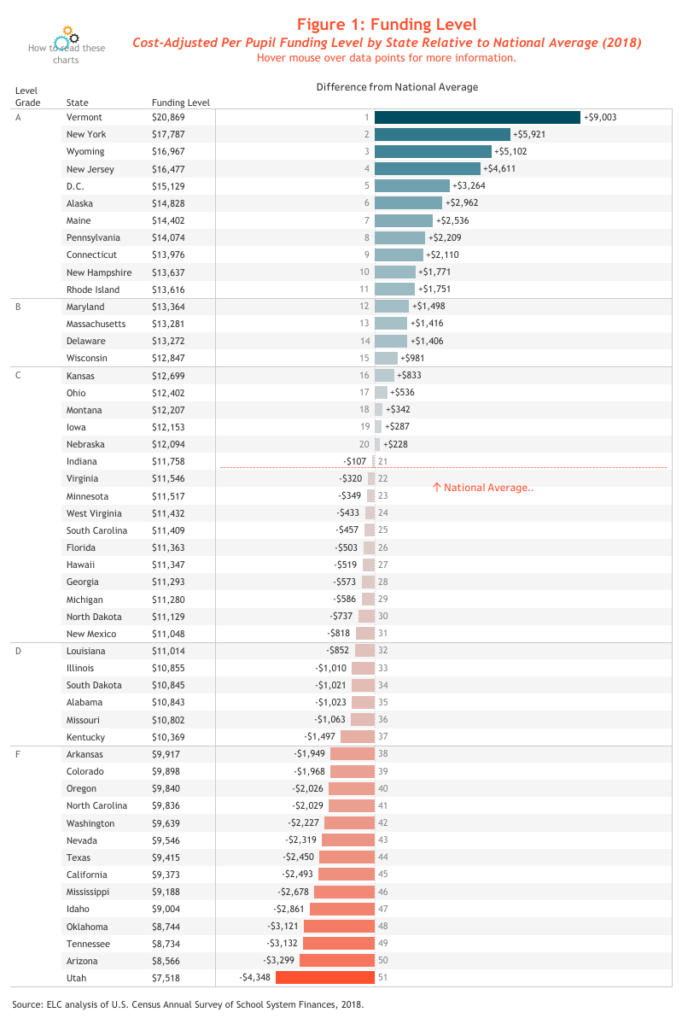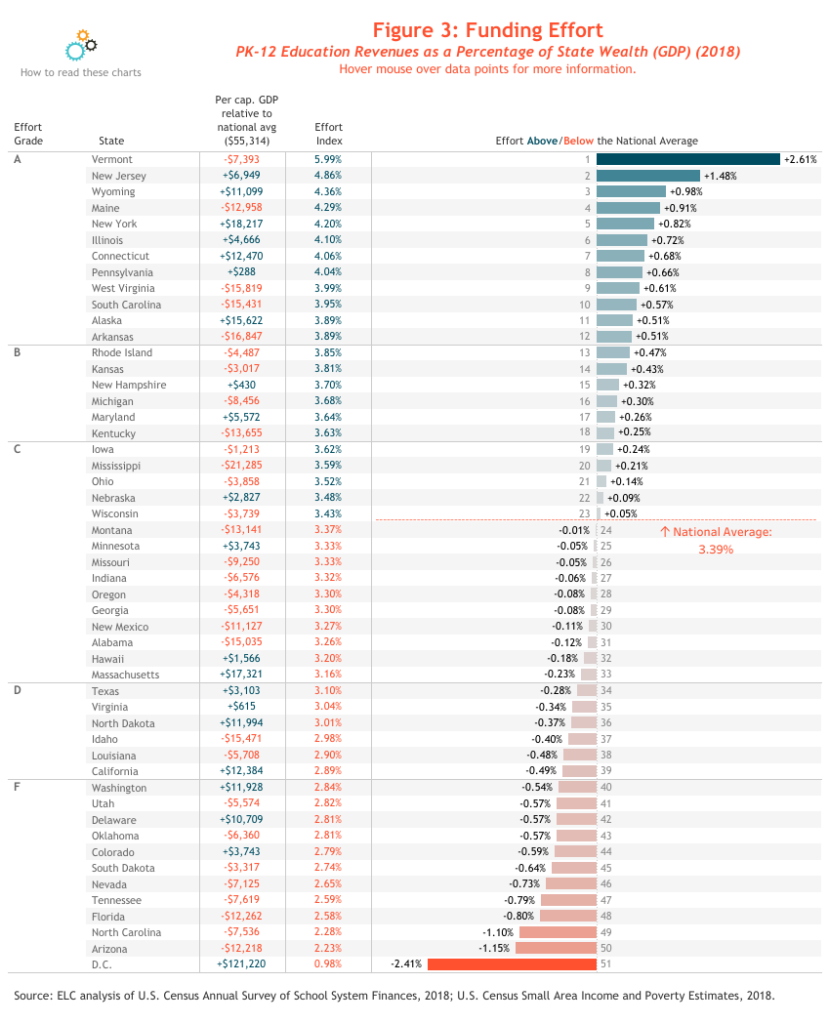The Tennessee State Board of Education has set the state’s minimum teacher salary at $38,000 for the upcoming school year. That’s $49 more than the current average minimum salary, according to a story in Chalkbeat.
While the overall boost in minimum teacher pay is certainly welcome news, what’s interesting is to examine the pace of change in teacher pay over time.
As the Chalkbeat piece notes, the average teacher pay in Tennessee overall is $51,349.
Here’s why that’s so fascinating. Back in 2014, the state’s BEP Review Committee issued a report calling on the state to fund teacher salaries by way of the BEP at a level equivalent to the actual state average salary. That average? $50,116. So, the average now is just a bit over $1200 more than the average in 2014. In other words, teacher pay in Tennessee is creeping up at a snail’s pace. And, of course, teacher pay in our state is still below the Southeastern average (about $2000 below).
As Chalkbeat notes:
The improvement comes as Tennessee lags Southern and national averages for both starting pay and overall salaries. The state is also bracing for a wave of retirements and struggling to secure teachers for hard-to-staff areas such as special education and classes for students learning to speak English.
A recent analysis by the Southern Regional Education Board shows Tennessee’s average educator salary in 2018-19 trailed half of the region’s states, including in border states like Georgia, Kentucky, North Carolina, and Virginia.
What’s unfortunate about this situation is this: Tennessee can actually afford to make a huge investment in teachers and schools. We have a $2 billion surplus this year alone!
We could afford to push starting teacher pay above $40,000 for all teachers in the state. We could afford to give every single teacher a significant (10%) or more raise this year. We could dramatically increase the per pupil expenditures.
But, we’re doing none of those things. Gov. Lee’s budget reflects a lack of imagination and a refusal to dream of what is possible. Instead, he’s content to continue the status quo of underfunded schools and underpaid teachers.
As Chalkbeat further notes, it’s not clear how much of this raise will reach teachers:
The $2,000 bump in base pay doesn’t mean all teachers will see a noticeable pop in their paychecks, though.
Districts have flexibility over how to use state funds toward teacher compensation, so it’s uncertain how much of Tennessee’s 4% increase will trickle down to teachers who are paid more than the state minimum.
Because of disagreements on the adequacy of state funding, districts have hired about 10,000 teachers beyond what the state’s formula provides. Any increase could get spread across those salaries too. Districts also could opt to use next year’s increase to hire more staff or improve benefits.
Lee has claimed to support teachers and teacher pay, as Chalkbeat notes:
Early in his administration, Lee vowed to make Tennessee the best state in America to be a teacher, but pandemic-related budget uncertainties and cuts delayed increases planned for the 2020-21 school year.
The reality, though, is that Lee has not invested seriously in schools in spite of a significant state surplus:
“The budget passed by the General Assembly is disappointing when we have a historic opportunity to get Tennessee out of the bottom five in education funding. With a record revenue surplus and hundreds of millions unappropriated, this was the time to stop underfunding our schools.
There were bills to provide for more nurses, counselors, RTI specialists and social workers that our students need today and moving forward to meet their mental and academic challenges cause by the pandemic and the problems of chronic underfunding. Instead, we saw a trust fund set up that will cover barely a fraction of the needs years down the road.
Lee’s commitment to putting just about everything ahead of funding schools and paying teachers may remind some of the previous governor, another guy named Bill who just couldn’t see fit to invest deeply in schools despite making a lot of promises.
Gov. Bill Haslam tweeted on October 3, 2013: “Teachers are the key to classroom success and we’re seeing real progress. We want to be the fastest improving state in teacher salaries.”
Instead, in 2014:
Haslam is balancing the state budget by denying promised raises to teachers and state employees and ditching his proposed increases to higher education.
Tennessee leaders do a lot of talking when it comes to investing in schools. “Fastest-improving” “Best place to be a teacher.” The reality is that teacher pay and overall investment in schools is moving at a snail’s pace. In fact, a recently released analysis shows that Tennessee invests less in public education relative to taxable resources than any other state in the nation.
I will note once again that this year would be the easiest in decades to invest in public schools – a $2 billion surplus is instead being used for tax cuts and to boost the state’s already overflowing savings account.
I would also note that every time the budget situation seems even a little tough, funding for schools is the first on the chopping block. Good times, bad times, more money, less money – it doesn’t matter. The last decade has made abundantly clear that Tennessee’s policymakers are not at all interested in paying for schools or investing in the teachers who make them work.

For more on education politics and policy in Tennessee, follow @TNEdReport
Your support – $5 or more – makes publishing education news possible.












